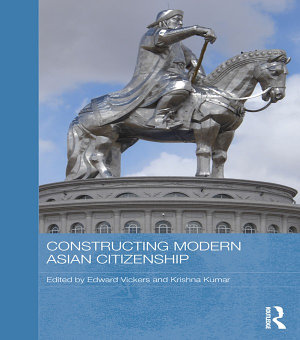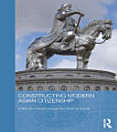Constructing Modern Asian Citizenship
Über dieses E-Book
This book presents analyses of a range of contemporary projects of citizenship formation across Asia in order to identify those issues and concerns most central to Asian debates over the construction of modern identities. Its main focus is on schooling, but also examines other vehicles for citizenship-formation, such as museums and the internet; the role of religion (in particular Islam) in debates over citizenship and identity in certain Asian societies; and the relationship between state-centred identity discourses and the experience of increasingly ‘globalized’ elites.
With chapters from an international team of contributors, this interdisciplinary volume will appeal to students and scholars of Asian culture and society, Asian education, comparative education and citizenship.
Autoren-Profil
Edward Vickers is Associate Professor of Comparative Education at Kyushu University, Japan.
Krishna Kumar is Professor at the Central Institute of Education, University of Delhi, India.







